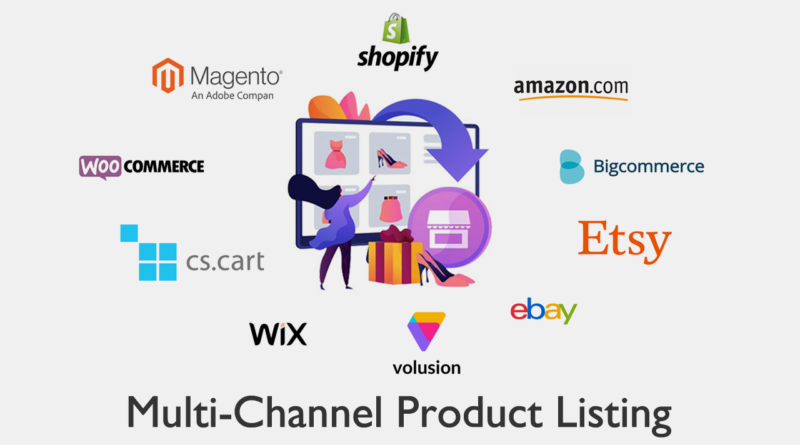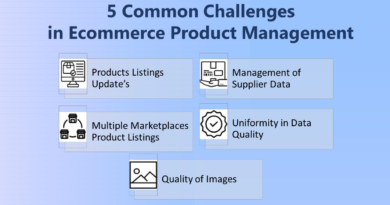Scaling up your ecommerce business with multi-channel product listing
Introduction:
The world of e-commerce has witnessed exponential growth in recent years, with businesses finding immense success in selling products online. However, as competition intensifies, it becomes crucial for e-commerce businesses to explore new avenues for expansion and revenue generation. One such strategy is multi-channel product listing, which allows businesses to reach a larger audience by showcasing their products on various online marketplaces and platforms. In this article, we will explore the benefits and strategies for scaling up your e-commerce business through multi-channel product listing.
Understanding Multi-Channel Product Listing
Multi-channel product listing refers to the practice of listing and selling products across multiple online platforms and marketplaces. By utilizing various channels, such as online marketplaces, social media platforms, and your own e-commerce website, you can extend your reach to a wider customer base. This approach enables you to target different customer segments, increase brand visibility, and drive more sales. Benefits associated with multi-channel selling include higher revenue potential, increased customer engagement, and improved market penetration. Some popular online marketplaces and platforms for multi-channel listing include Amazon, eBay, Walmart, Shopify, and Etsy.
Research and Planning
Before embarking on a multi-channel product listing strategy, thorough research and planning are essential. It is crucial to analyze your target audience, market trends, and competitors. Understanding your customers’ preferences and shopping behavior will help you identify the most profitable channels for product listing. Additionally, conducting competitor analysis and benchmarking will provide valuable insights into successful strategies and potential gaps in the market. Setting clear goals and objectives for your multi-channel listing efforts will keep your business focused and aligned with its growth plans.
Inventory and Order Management
Efficient inventory and order management are pivotal in ensuring a seamless multi-channel selling experience. Implementing centralized inventory management systems can help you keep track of stock levels across various channels. This reduces the risk of overselling or underselling, resulting in improved customer satisfaction. Additionally, syncing inventory levels in real-time across channels ensures accurate availability information for customers. Effective order fulfillment and efficient logistics management are essential to meet customer expectations and maintain timely deliveries.
Creating Engaging Product Listings
An engaging and optimized product listing plays a crucial role in attracting customers and driving conversions. It is important to optimize product titles, descriptions, and images to enhance visibility on various channels. Utilizing relevant keywords and implementing SEO strategies will improve search engine rankings, thereby increasing the likelihood of your products being discovered by potential customers. A/B testing different listing elements allows you to identify the most effective strategies and optimize your listings for better performance. Incorporating user-generated content and social proof such as ratings and reviews can also enhance customer trust and confidence in your products.
Channel Integration and Automation
Managing multiple channels can be challenging without the right tools and systems in place. Exploring automation tools specifically designed for multi-channel product listing can greatly simplify the process. Ecommerce data entry and product data management services can help streamline the listing process and ensure accurate and consistent information across all channels. Online store management platforms can assist in integrating different channels, enabling centralized management and synchronization of inventory and orders. Additionally, inventory management services can automate inventory updates and provide real-time data on stock levels to prevent any discrepancies.
Leveraging Ecommerce Data Entry and Management Services
Managing multiple channels and optimizing product listings can be a time-consuming task, especially for businesses with large catalogs. This is where ecommerce data entry and management services can prove invaluable. These services assist in catalog processing, product data entry, online store management, and inventory management. By leveraging specialized services, businesses can streamline their operations, save time, and focus on scaling up their e-commerce business effectively.
Conclusion:
In the fast-paced world of e-commerce, scaling up your business requires a strategic approach that encompasses multi-channel product listing. By understanding the concept, conducting thorough research and planning, implementing efficient inventory and order management systems, creating engaging product listings, and leveraging channel integration and automation, you can maximize your reach and revenue potential. Additionally, utilizing ecommerce data entry and management services can help streamline operations and support your business’s growth. By adopting a multi-channel product listing strategy, you can take your e-commerce business to new heights of success.




